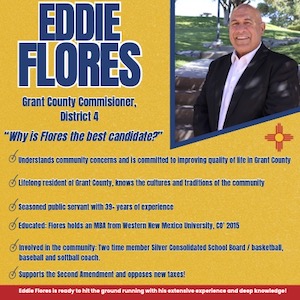By Elaine Carlson
I have been reading the American Edition of Eats, Shoots and Leaves by Lynne Truss. Just above the title is the proclamation identifying it as The Runaway # 1 British Bestseller.
The author starts her preface, "To be clear from the beginning: no one associated with the production of Eats Shoots and Leaves expected the words "runaway" and "bestseller" would ever be associated with it, let alone upon the cover of an American edition."
Truss may have been surprised by the magnitude of the success of her book but as soon as most people start to read it they will know why so many copies of the book have been sold. Eats Shoots and Leaves is a good grammar textbook and it is very funny --- an amazing overlap of categories.
In the chapter "A Little Used Punctuation Mark" the author discusses the uses and the controversies of the hyphen. President Woodrow Wilson said the hyphen is "the most un-American thing in the world" (and yes she reminds the reader he used a hyphen in his remark). Winston Church said it is "a blemish to be avoided whenever possible."
The author presents a convincing case for the hyphen. She tells how having or not having one in a word can signal different meanings. Re-formed and re-mark are not the same as reformed and remark. She is also sure there could be real problems with getting rid of hyphens: "if it's not extra-marital sex (with a hyphen) it is perhaps extra marital sex, which is a different bunch of coconuts."
I am not completely convinced by her argument. In her big example the hyphen will only make a difference in writing. In conversations when those two words are said together, with or without a hyphen, it means a time when a married person is having relations with a person other than their spouse. People won't recognize the difference in the same way they will when they hear the twin pairs re-formed/reformed and re-mark/remark.
The Irish American author Frank McCourt (Angela's Ashes) said, "If Lynne Truss were Catholic I'd nominate her for sainthood." I agree with that sentiment. Just think of what Truss was able to accomplish. She wrote a book on a subject very few people consider fascinating, punctuation, and ended up creating a book that is fun to read.
I have not been spending all my time reading Eats Shoots and Leaves. I have also been going through grammar books and style guides. I have been a little surprised that even in a mostly staid publication you can occasionally find something amusing (or should I say interesting?).
The 15th Edition of The Chicago Manual of Style states "a female fox is a vixen, but there is no equivalent term for a female goldfish." They say in such situations "descriptive adjectives such as male and female may be needed [5.11 page 149]."
Gawd dang I don't want instructions about how to refer to female foxes and goldfish. I think it would have been preferable if that august publication had made their comparison between cats and dogs. And perhaps told their readers how to refer to a female cat. I am sure practically everybody in the United States knows what a female dog is called.
I wanted to know what to call a female cat so I looked online. And from the top response I learned: "When she is pregnant or nursing kittens, a female cat is referred to as a Queen otherwise she is a molly. A purebred female is referred to as a Dam. Unneutered males are known as Toms or Tomcats and neutered males are gibs [The Pet Handbook]."
I guess The Pet Handbook knows their subject but I don't understand why they refer to a Queen, a molly, and a Dam in the singular but to Toms, Tomcats and gibs in the plural. And why didn't the writer capitalize molly and gibs?













